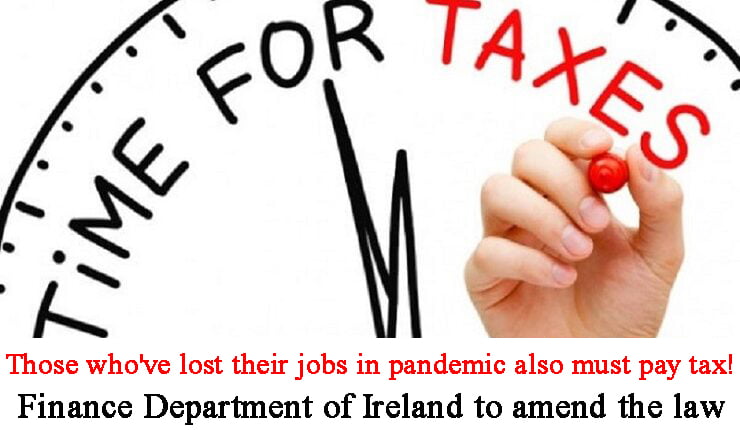Those who’ve lost their jobs in pandemic must pay tax; Finance Department of Ireland to amend the law
DUBLIN: The law is being amended to provide for income tax on pandemic unemployment payments, amid objections from opposition parties.
The lawsuit was probably funded by the Oireachtas Finance Committee, which voted in favor of the provisions of the Finance Bill, which clarifies that pandemic unemployment payments are subject to income tax.
Unemployment payments began in March for workers who lost income as a result of public health restrictions imposed by the government, following COVID-19 pandemic.
The PUP was given legal effect in August. Of these, all payments made from April to August were referred to by the Government as emergency payments under Section 202 of the Social Welfare Consolidation Act 2005.
Such payments are generally not subject to tax. It was at this point that the government began the move to bring in a tax law for the PUP. Ministers and revenue commissioners had said that the PUP, like other social welfare payments, would be subject to income tax.
Subsequently, the Finance Committee discussed the provisions in the Finance Bill, which will be enacted by the Legislature for the 2021 Budget. Five members of the committee voted in favor of the Finance Bill, while four opposed it.
Meanwhile, opposition TDs have come out in protest against the government’s move. The opposition alleges that levying tax under Section 202 on those who lost their jobs and lives in pandemic is a vicious act.
But Finance Minister Paschal Donohoe rejects this. “These payments were paid out under Section 202 of that bill because of the need to make these payments quickly and to associate them with a relevant clause in the social welfare legislation,” minister said. Later, when the government studied all its aspects, it was found that the PUP could be subjected to tax. That is why this provision is being included in the new budget law, the minister explained.
But Sinn Féin finance spokesperson Pearse Doherty sharply criticised the finance minister. Pearse Doherty alleges that he lost his job and had to pay taxes.
“I think there are serious issues in relation to this, particularly around the principle of retrospective taxation. Regardless of whatever the minister’s personal intentions were or the government’s personal intentions, the legal basis for this payment that was paid out — which was hundreds of millions of euro at the time — was Section 202 of the Social Welfare Act, and therefore, as a result, was not taxable,” he said.
Meanwhile, Revenue had confirmed in September that PUP recipients would receive the arrears by the end of 2020 if they wish. Revenue also allows consumers to reduce their liabilities over a four-year period by reducing tax credits.


Comments are closed.